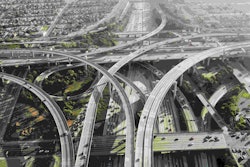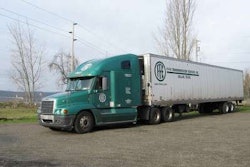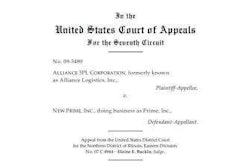The Port of Los Angeles announced that it has been awarded a $731,000 grant from the U.S. Environmental Protection Agency to purchase and test new technology that could reduce diesel emissions and greenhouse gases significantly from rubber tired gantry cranes, which are used for stacking containers. The technology, called the EcoCrane, is on EPA’s list of emerging technologies aimed at advancing clean diesel technology and expertise.
“This grant allows us to be at the leading edge of yet another green technology initiative,” says Geraldine Knatz, Port of Los Angeles executive director. “In the long run, emissions-reduction technology for such a common and critical piece of cargo handling equipment can be a benefit for ports everywhere.”
The EcoCrane technology involves replacing a conventional 685-hp diesel engine on a rubber tired gantry crane with a downsized 105-hp diesel engine that charges a battery pack. The battery pack drives an electric motor that powers the gantry operation. Because the engine runs only periodically to maintain the battery charge, the EcoCrane can reduce particulate matter up to 85 percent and greenhouse gases up to 70 percent.
The Port of Los Angeles is partnering on the project with West Basin Container Terminal at the port, as well as Ports America, the largest terminal operator and stevedore company in the Americas. Produced by EcoPower Hybrid Systems, the EcoCrane will be tested over the next 12 months by Ports America at the West Basin Container Terminal to verify the projected emissions reductions by EPA.
If the test is a success, the port will consider requiring the EcoCrane technology when future terminal leases are renewed. The grant was awarded under EPA’s emerging technologies program to promote diesel emissions reductions. The program focuses on advancing new cutting-edge technologies not yet certified by EPA but that show promise and warrant further evaluation.










